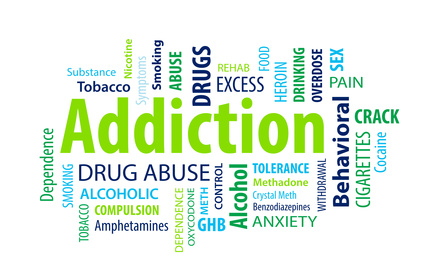Embracing 35 Years of Hope: Celebrating National Recovery Month with Special Advice for Addicts
 Recovery from your addiction is a challenging journey. Addicts and their families face many obstacles, but with certain strategies in place, they can rebuild their lives. Here is how to create a healthy foundation so you and your loved ones can move forward with hope.
Recovery from your addiction is a challenging journey. Addicts and their families face many obstacles, but with certain strategies in place, they can rebuild their lives. Here is how to create a healthy foundation so you and your loved ones can move forward with hope.
Family Concerns
Addiction creates many casualties, with the addict and the addict’s family at the center of the struggle. Sometimes jobs are lost, finances depleted, reputations damaged, arrest records established, and other hurtful situations created, all of which gives a foothold to feelings of distrust, anger, and resentment. Oftentimes, relationships can be so broken, you might feel there is no way to repair the cracks. As some professionals point out, you and your loved ones need to allow time for restoration. Usually, the best results are obtained when a therapist assists the process, helping to promote communication and the sorting of feelings in a productive manner. Families should start proactive measures as soon as possible, and you must commit to honesty and making amends. With hard work and time, families can rebuild trust and respect.
Strengthening Bonds
When it comes to rebuilding troubled relationships, experts at PsychCentral explain family members need to embrace an attitude of support during the recovery process. However, it’s also important to recognize how loved ones played into the developing addiction and establish boundaries to eliminate patterns of codependency and enabling behaviors. You need to step back and allow the relationships to be reframed in order to recover and for relationships to heal. With a little space, addicts and family members can assess behavior and identify how to break unhealthy cycles so new, healthy behaviors can develop.
Self-Care
Practicing self-care during and after recovery is an important piece of your new, healthier lifestyle choices. Health.com explains that tending your own needs should be a top priority. Without filling your own cup first, you don’t have the resources to sustain your relationships properly. Consider including these components in your own self-care program.
Exercise
Participating in an exercise regimen can be a key part of addiction recovery. Physical activity can help fight cravings by releasing feel-good chemicals in your brain. Exercise also can improve your outlook and increase self-confidence. Yoga can be especially helpful, as the mindfulness inherent to yoga can help you navigate triggers.
Rest
Getting enough sleep is good for you. Some research reflects that sleep is vital to being able to control your emotions and keeping your inner clock functioning properly. Try to go to bed at the same time every day and get up at the same time each morning to help set your body into a healthy rhythm. Aim for seven to nine hours of slumber each night. Reducing the stress levels in your home with a soothing environment can help you relax and sleep better. Also, establish a bedtime routine to help you unwind, such as dimming the lights and shutting down electronic devices.
Get Involved
Being part of a bigger picture is another cornerstone of self-care. Connect with others through community involvement; it helps to reduce stress, increases happiness, and encourages you to focus on others instead of your personal struggle. Those who spend time participating in community projects are less lonely and can potentially experience better physical and mental health, strengthening their immune systems, enjoying better sleep habits, improved digestion, and potentially living longer. Consider volunteering for something you are passionate about and makes you feel good, whether it’s caring for animals at a shelter or working in a soup kitchen.
Go Forward with Hop
Addiction can damage you and your loved ones. However, broken lives can be mended. Take care of yourself and travel the journey of recovery. Embrace hope for a better future.
